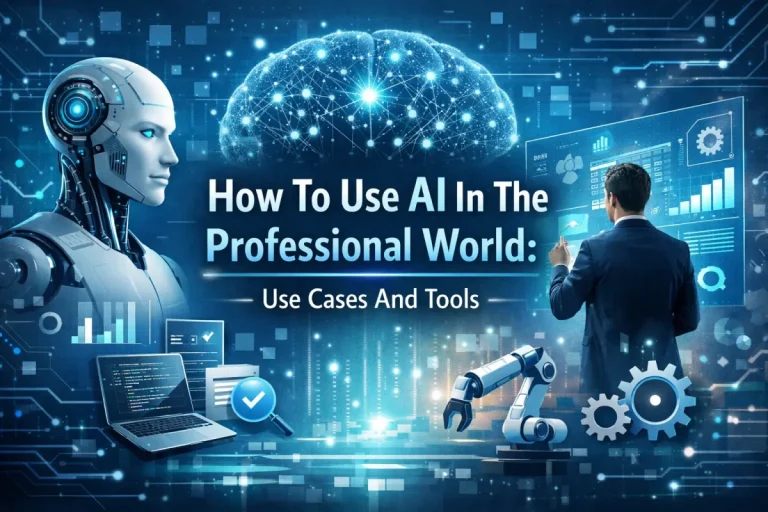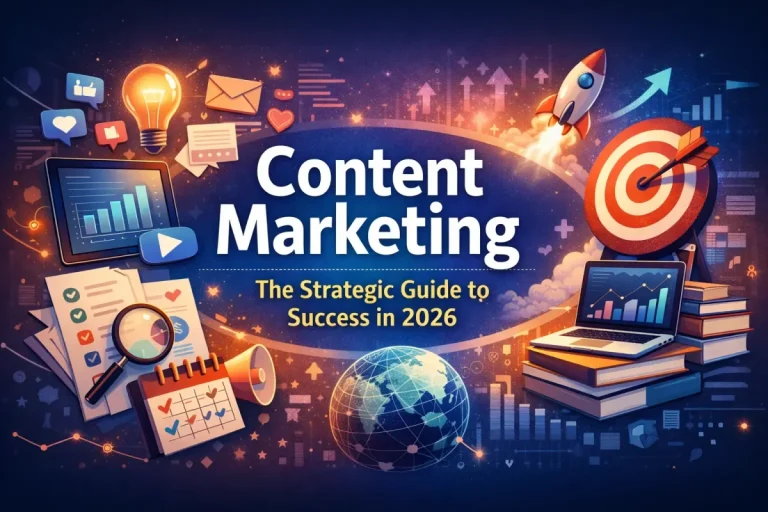In the rapidly evolving digital landscape, understanding what elements are foundational for SEO with AI is no longer just an advantage—it’s a necessity. This article delves into the core components that underpin successful search engine optimization when integrated with artificial intelligence, providing a clear roadmap for anyone looking to enhance their online presence.
Understanding Foundational Elements for SEO

Grasping the foundational elements for SEO is the first critical step in any digital marketing strategy, especially as we increasingly use AI. These core principles remain vital, even as AI tools and AI algorithms reshape the search landscape. To truly optimize for search engines and achieve higher ranking, one must first master traditional SEO practices before layering in AI-driven SEO techniques. This includes understanding how search engines work, what signals they prioritize, and how to effectively optimize content for both human users and AI tools like those powering Google’s search results. Without a solid grasp of these basics, even the most advanced AI tools will struggle to deliver meaningful SEO success.
Defining SEO Success
Defining SEO success in today’s environment, particularly when we integrate AI in SEO, goes beyond merely achieving a high search engine ranking. True SEO success now encompasses a holistic approach where user intent and user experience are paramount, and AI-powered SEO plays a pivotal role in achieving this. It means optimizing content not just for keywords, but for the complex nuances of natural language processing and evolving search behavior, including voice search.
AI helps us understand and predict these shifts, allowing us to proactively optimize content and our overall SEO strategies. This redefined success is about creating a seamless, valuable journey for the user, which ultimately leads to better engagement and higher conversions, effectively redefining what elements are foundational for SEO with AI.
Key Elements of SEO
| SEO Element | How AI Enhances It |
| Thorough Keyword Research | Tools like Contentshake AI perform with unprecedented accuracy, uncovering nuanced search behavior and long-tail opportunities. |
| Technical SEO | AI-powered tools streamline by identifying issues and suggesting optimal solutions for crawlability and indexability. |
| High-Quality, Relevant Content | AI content generation tools assist in creating optimized content at scale that genuinely addresses user intent. |
The Role of AI in SEO
The role of AI in SEO is rapidly evolving, transforming how we approach optimization with AI and making it an indispensable part of modern SEO. AI allows us to analyze vast amounts of data, predict search behavior with greater accuracy, and personalize the user experience in ways traditional SEO could only dream of. For example, AI can analyze search results to identify patterns; AI algorithms can help refine targeting; and AI can help automate repetitive tasks, freeing up SEO professionals to focus on strategic initiatives. This integration of AI enhances every aspect of SEO performance, making AI in SEO a non-negotiable for future SEO efforts.
AI tools are revolutionizing various aspects of SEO:
| Area of Impact | Examples of AI’s Role |
|---|---|
| Content and SEO Tools | SE Ranking’s AI content, other AI SEO tools |
| Core SEO Processes | Keyword research, competitive analysis, on-page optimization, link building |
Technical SEO and Site Optimization
Importance of Technical SEO
Understanding the importance of technical SEO is absolutely critical, and it’s a foundational element for SEO with AI. Even the most brilliantly optimized content won’t rank if search engines can’t properly crawl, index, and understand your website. Technical SEO ensures your site’s infrastructure supports your overall SEO strategies. This involves everything from site speed and mobile-friendliness to structured data and canonical tags. As we increasingly use AI in SEO, technical soundness becomes even more vital because AI algorithms are constantly evaluating site performance and user experience signals. If your site has technical flaws, it hinders the ability of AI tools to effectively analyze and optimize your content, ultimately impacting your search engine ranking and preventing true SEO success.
AI-Driven SEO Strategies
AI-driven SEO strategies are revolutionizing how we approach optimization, making use of sophisticated AI tools to gain unprecedented insights and efficiencies. For instance, AI tools can help refine keyword research by uncovering nuanced user intent and long-tail opportunities that might be missed by manual methods. Furthermore, AI-powered SEO can automate parts of content optimization, personalize user experience, and even provide real-time competitive analysis, allowing businesses to adapt their SEO efforts much faster. The integration of AI ensures that your SEO strategies are not just reactive but proactively optimized for the dynamic search landscape, truly embodying what elements are foundational for SEO with AI.
| AI Capability | Description |
|---|---|
| Data Analysis | Analyze vast datasets to understand search patterns. |
| Behavior Prediction | Predict future search behavior of users. |
| Trend Identification | Accurately identify emerging search trends. |
Optimizing Technical Elements with AI
Optimizing technical elements with AI significantly enhances the efficiency and effectiveness of your SEO performance. AI tools are becoming indispensable for identifying and resolving technical SEO issues that might otherwise go unnoticed or take considerable manual effort to fix. For example, AI-powered tools can quickly audit a website for crawl errors, broken links, duplicate content issues, and site speed bottlenecks, providing actionable recommendations for improvement. They can also analyze log files to understand how search engine bots interact with your site, offering insights into crawl budget optimization.
Moreover, AI can help optimize structured data markup, ensuring that search engines and AI algorithms better understand your content, which can improve visibility in rich snippets and voice search results. Leveraging AI in this way ensures that the foundational elements of SEO are robustly optimized, paving the way for superior search engine ranking and a better user experience.
Keyword Research and User Intent

Effective Keyword Research Techniques
Effective keyword research techniques remain a cornerstone of SEO, and the integration of AI is revolutionizing how we approach this critical task, highlighting what elements are foundational for SEO with AI. While traditional SEO often relied on manual keyword tools, AI tools like Contentshake AI and other AI-powered SEO platforms now provide unprecedented depth and accuracy.
These advanced AI tools analyze vast datasets of search results and user behavior, uncovering long-tail keywords and semantic variations that human researchers might miss. They can identify emerging trends and predict future search behavior, allowing SEO strategies to be proactive rather than reactive. By leveraging AI in keyword research, we can optimize content more precisely, ensuring it aligns perfectly with user intent and enhances overall SEO performance, ultimately contributing to better search engine ranking.
Understanding User Intent
Understanding user intent is paramount for SEO success, and AI plays a crucial role in deciphering the nuances of search behavior, which is a foundational element for SEO with AI. Gone are the days when simply stuffing keywords into content guaranteed a high search engine ranking; today, the search engine prioritizes content that genuinely answers a user’s query and fulfills their underlying need.
AI tools analyze natural language processing patterns, review search results, and even process voice search queries to determine the true intent behind a user’s words. This AI-powered SEO capability allows us to optimize content not just for specific keywords but for the complex motivations driving a search. By deeply understanding user intent, we can craft more relevant and valuable content, significantly enhancing the user experience and improving our SEO efforts.
Utilizing AI for Keyword Optimization
Utilizing AI for keyword optimization transforms the entire SEO landscape, making it a truly foundational element for SEO with AI. AI tools analyze massive amounts of data, including search volume, competition, and the semantic relationships between terms, to identify the most impactful keywords for your content. AI can help refine keyword targeting by suggesting variations, identifying gaps in your current strategy, and even predicting the performance of new keywords.
Furthermore, AI content generation tools can assist in weaving these keywords naturally into your content, ensuring optimal density and relevance without resorting to outdated practices like keyword stuffing. This AI-driven SEO approach ensures that your content is not only discoverable by search engines but also genuinely resonates with your target audience, contributing to superior search engine ranking and overall SEO success.
Enhancing User Experience
User Experience as a Ranking Factor
User experience (UX) has emerged as an incredibly significant ranking factor for search engines, and its importance is amplified when we talk about what elements are foundational for SEO with AI. Search engines, increasingly powered by AI algorithms, are designed to deliver the best possible search results to users, which means prioritizing websites that offer a seamless and valuable user experience. AI algorithms analyze various signals, such as bounce rate, time on page, and click-through rates, to gauge user satisfaction.
A positive user experience leads to higher engagement, lower bounce rates, and increased conversions, all of which signal to search engines that your site is high-quality and relevant. Therefore, optimizing for user experience is no longer just a good practice; it’s a critical component for achieving high search engine ranking and overall SEO success, directly impacting how AI in SEO perceives your site.
AI Tools for Improving User Experience
AI tools are revolutionizing how we approach improving user experience, making it a pivotal aspect of what elements are foundational for SEO with AI. AI-powered tools can analyze vast amounts of user data, including behavior patterns, navigation paths, and conversion funnels, to identify areas for improvement on a website. For instance, AI chatbots can provide instant customer support, enhancing user satisfaction and reducing frustration. AI tools like those used in A/B testing can help optimize website layouts, content presentation, and call-to-actions based on real-time user feedback and predictive analytics.
Furthermore, AI helps personalize the user experience by delivering tailored content and recommendations, ensuring that each visitor finds what they need quickly and efficiently. Leveraging AI in this way not only enhances user engagement but also sends strong positive signals to search engines, significantly boosting your search engine ranking and overall SEO performance.
Voice Search and Its Impact on SEO
Voice search has profoundly impacted the SEO landscape, demanding a shift in how we think about what elements are foundational for SEO with AI. As more users interact with search engines through voice assistants, the nature of queries has become more conversational and natural language-based. This requires SEO strategies to move beyond traditional keyword research to focus on long-tail, question-based queries that mirror human speech patterns. AI algorithms, particularly those involved in natural language processing, are crucial for understanding the nuances of voice search queries and delivering relevant results.
Optimizing for voice search often involves creating comprehensive, answer-focused content that directly addresses potential questions. AI tools can help identify common voice queries and integrate them into your content strategy. The growth of voice search emphasizes the need for a holistic approach to SEO, where understanding user intent and providing clear, concise answers is paramount for achieving high search engine ranking in the future of SEO.
The Future of SEO with AI

AI is Revolutionizing SEO Practices
AI is truly revolutionizing SEO practices, fundamentally transforming what elements are foundational for SEO with AI. The traditional SEO landscape, once dominated by manual processes and educated guesses, is now being supercharged by the power of artificial intelligence. AI automates tedious tasks, provides data-driven insights with unprecedented accuracy, and enables predictive analysis of market trends and search behavior.
From sophisticated keyword research that uncovers nuanced user intent to advanced technical SEO audits that identify site issues instantaneously, AI allows SEO professionals to optimize content and overall SEO strategies more efficiently and effectively. This integration of AI means that SEO is no longer just about reacting to algorithm updates but about proactively shaping your online presence, ensuring that your SEO efforts are always ahead of the curve and contribute to superior search engine ranking.
Emerging Trends in AI-Driven SEO
Emerging trends in AI-driven SEO are continuously reshaping the field, highlighting new aspects of what elements are foundational for SEO with AI. One significant trend is the increasing sophistication of AI content generation, where AI tools can create high-quality, optimized content at scale, though human oversight remains crucial for quality and authenticity. Another trend is the rise of personalized search results, where AI algorithms tailor search results based on individual user behavior, location, and preferences, making user experience even more critical.
Predictive analytics powered by AI allows businesses to anticipate changes in search behavior and algorithm updates, enabling proactive adjustments to their SEO strategies. Furthermore, the integration of AI chatbots for on-site assistance and enhanced user engagement is becoming more common. These trends underscore the fact that leveraging AI is no longer an option but a necessity for anyone looking to optimize content and achieve SEO success in the modern SEO landscape.
The SEO Landscape: Adapting to Change
The SEO landscape is in a constant state of flux, and adapting to change is paramount for anyone looking to understand what elements are foundational for SEO with AI. As AI continues to evolve and integrate more deeply into search engine algorithms, SEO professionals must continuously update their skills and strategies. This means embracing new AI tools and learning how AI can enhance every aspect of their SEO efforts, from keyword research to technical SEO and content optimization.
The future of SEO demands a proactive approach, where understanding user intent, providing exceptional user experience, and leveraging AI-powered SEO insights are key. Those who fail to adapt to this AI-driven evolution risk being left behind, as search engine ranking will increasingly favor sites that effectively utilize AI to deliver the best possible search results and a seamless user journey.
Conclusion
SEO is a dynamic field, and AI is transforming how we approach it. By focusing on foundational elements like keyword research, on-page and technical SEO, off-page strategies, and user experience, you can build a strong SEO foundation. AI enhances these elements by automating tasks, providing data-driven insights, and personalizing user experiences. Whether you’re using tools like Ahrefs for keyword research or Jasper for content creation, integrating AI into your SEO strategy can save time and boost results.
Ready to take your SEO to the next level? Start by exploring AI tools that align with your goals, and don’t forget to monitor your progress with analytics. With the right approach, you’ll see your website climb the search rankings and attract more organic traffic.
FAQ

What is AI in SEO?
AI in SEO refers to the use of artificial intelligence tools to optimize websites for search engines. These tools analyze data, automate tasks, and provide insights to improve keyword targeting, content quality, and user experience.
How does AI improve keyword research?
AI tools use natural language processing to identify high-value keywords, predict search trends, and analyze competitor strategies, making keyword research faster and more accurate.
Can AI write SEO-friendly content?
Yes, AI writing tools like Jasper or Writesonic can generate SEO-optimized drafts, including blog posts and meta descriptions. However, human editing is essential to ensure quality and authenticity.
What are the best AI tools for SEO?
Popular AI tools for SEO include Ahrefs, SEMrush, SurferSEO, Clearscope, and Jasper. These tools help with keyword research, content optimization, and technical SEO.
How does AI improve user experience for SEO?
AI enhances user experience by personalizing content, optimizing site speed, and improving engagement through chatbots and predictive analytics, which align with Google’s Core Web Vitals.





